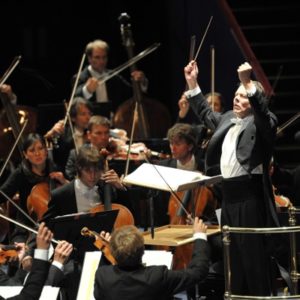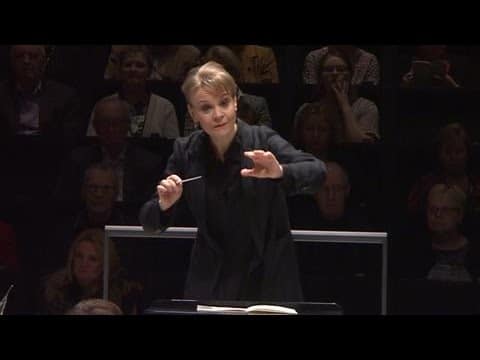Laura Newey, a former student at Chetham’s School of Music, has published a brave piece in the London Review of Books detailing the phenomenal conver-ups conducted over more than 40 years of sexual abuse at Manchester’s two distinguished music schools.
Among other things she writes: Music schools disproportionately attract odd, disturbed and vulnerable children who struggle in mainstream education. Many students and staff accordingly thought of Chetham’s as a refuge from the outside world; a common mantra was that the school was like ‘one big family’. Any negative coverage of the school – in particular, the regular articles on Norman Lebrecht’s Slipped Disc blog – attracted a chorus of zealous defenders. One commenter on Slipped Disc implied that she had been abused at Chets; a pupil responded on Facebook that she needed ‘slapping across the face with a cock’. There was a general feeling that any internal criticism of the school was traitorous.
Senior figures have insisted they were unaware of sexual abuse at Chets. During Vallins’s IICSA testimony, someone in the public gallery shouted out: ‘You did know! You were told. It’s as clear as that. You’re lying … You did nothing. You have not apologised. I hope you can live with yourself.’ Vallins said that this was ‘absolutely untrue’. Ian Pace told the inquiry that he believed Vallins’s priorities ‘were primarily for the reputation of the school’.

Read on here.
No principal or head teacher of Chetham’s and RNCM, no head of department or chair of the board of governors, has ever been held to account for the appalling culture of sexual abuse that prevailed at both institutions.
Why is that?
The well-informed Robert Braunmüller at Munich’s Abendzeitung tips Simon Rattle and Daniel Harding as the likelest successors to the late Mariss Jansons at the Bavarian Radio Symphony Orchestra.
Since Harding is taking a year off to be an airline pilot, that leaves Rattle out front as the one to beat.
Also mentioned is Franz Welser-Möst.
Read here.

In a late, late edition of the old pals act, Zubin Mehta is taking over the run of Falstaff next week from Daniel Barenboim, who is otherwise occupied.

Or so the website says.
They blew up the old 1931 toilet block – the one where Hitler wee’d – after the summer fest.
The plan was to build a new block at a cost of 540,000 Euros.
Unfortunately, the costs have overflowed by 130,000 Euros and town councillors are refusing to spend a penny more (boom-boom).
For the moment, visitors are being advised to go, before they go to Bayreuth.

Michael Boder was supposed to have replaced the unwell Mikko Franck in Salome this week.
Oops… his head just fell off.
They have called in Dennis Russell Davies for tonight.
Dennis Russell Davies übernimmt am heutigen Montag, 20. Jänner 2020, die musikalische Leitung von “Salome” anstelle von Michael Boder. Michael Boder (der wiederum für den erkrankten Mikko Franck eingesprungen wäre) musste die Vorstellung leider verletzungsbedingt kurzfristig absagen.
Vienna line of substitute conductors waiting for the call
The Slipped Disc/CBSO100 review of Mahler’s Symphony of 1,000 in Birmingham this weekend:
Mahler Symphony No.8, CBSO at Symphony Hall
★★★★★
Mahler’s famous riposte to Sibelius that, “the symphony must be like the world. It must embrace everything!” was embodied in this exuberant all-embracing Symphony of a Thousand. From the thunderous opening Veni, Creator Spiritus to the ecstatic closing mystical chorus this performance gripped us in a marvellous musical hug. With the massed choral forces in front and in the right and left circles we were enveloped in sound, in sympathy with every swoop and swirl of this epic musical journey. The symphony’s second part, inspired by Goethe’s Faust, moves into an imaginative landscape of abysses and mountain ranges which the choirs and soloists conjured into life. With Morris Robinson’s rock steady bass as its foundation, up through the heights of baritone Roland Wood and mezzos Karen Cargill and Alice Coote to the shimmering soprano pinnacle of Erin Wall, Natalya Romaniw and Katja Stuber. AJ Glueckert was an outstanding Doctor Marianus, impassioned but lyrical too.
The choral forces came from Birmingham and Baltimore – the CBSO Chorus CBSO Youth Chorus, CBSO Children’s Chorus, University of Birmingham Voices and Baltimore Choral Arts Society – aged from eight-years-old to seasoned veterans. From roof-raising frisson-inducing power to utmost delicacy – Mahler’s “blessed youths” sounding truly angelic – they were inspired. Amidst all the sound, fury and sublimity was Mirga Gražinytė-Tyla, a petite oasis of calm amidst the storm, who marshalled the massive forces splendidly. She was never afraid to explore the extremes of tempo and volume or to hold and caress a phrase – supported magnificently by the orchestra.
Norman Stinchcombe

From Richard Bratby’s more detailed review for theartsdesk.com:
As well as Gražinytė-Tyla and a suitably enlarged CBSO, all three of the CBSO’s resident classical choruses and youth choruses were on stage, reinforced by the University of Birmingham Voices (another project of the CBSO’s chorus director Simon Halsey) and the hundred-odd singers of Baltimore Choral Arts Society, who’d made the trip across the Atlantic to perform a work which, 110 years on, is still worth a detour. The artistic rationale – besides an understandable desire to make a splash – was intriguing. In 1920, the CBSO’s first music director Appleby Matthews planned (but never gave) what would have been the symphony’s UK premiere. It’s hard to imagine what that might have sounded like: even in Symphony Hall, the massed singers extended into the Circle and more than halfway down the auditorium.
That created a thrilling surround sound effect – not, as feared, an engulfing wash of undifferentiated noise, but a brilliant, ricocheting, physical impact as each section hurled its phrases across the hall in counterpoint and in dialogue, crystal clear and blazing with conviction. Even the adult voices had a youthful ring. Words were comprehensible, dynamics were observed with absolute unanimity and the mightiest perorations had a recognisably musical shape and direction, while Part One’s dissonant, demonic shouts had a vicious sting. Credit for that – a huge element in the performance’s impact – has to go to Simon Halsey and his colleagues, of whom Julian Wilkins was upstage, acting as assistant conductor with the CBSO Youth Chorus and Children’s Chorus (who sounded serenely unfazed either by Part One’s medieval Latin or the tongue twisting high German of Goethe’s Faust in Part Two)….
Read on here. No national newspaper has yet published a review.
Tony Hall has announced he will step down this summer at director general of the BBC.
He will be 69 and will have been in the job for 7 years.
He leaves not a moment too soon.
The BBC needs a stronger defender from accusations of political bias from left to right. It needs someone untained by a long trail of bad executives and unequal pay.
Above all it needs someone who can talk peace to government – which rules out Hall’s successor in waiting James Purnell, who is a former Labour Cabinet minister.
The next D-G will come from the outside.
Tony Hall, after a long BBC career ending up as Head of News, was an exremely successful director of the Royal Opera House, earning himself a seat in the House of Lords. His return to the BBC was somewhat less glorious. Its cultural assets, in particular, are in steep decline and its strategy is convoluted.

His best asset as a manager was his ability to take a joke against himself, notably the comedy series W1A 1AA
Then HarrisonParrott agency, which this weekend announced the retirement of its flagship star Vladmir Ashkenazy, has quietly put out the word that the Finnish conductor Susanna Mälkki has quit. The wording is interesting:
Harrison Parrott are sad to announce that Susanna Mälkki has decided to move her management to FidelioArts with immediate effect.
It goes on:
We are very proud to have been her managers and partners from the very beginning of her career more than 20 years ago… We take pride that her international career is now at the highest level around the world…. we wish her every success in the next chapters of her life.
With immediate effect.
FidelioArts is the boutique agency that looks after Dudamel, Salonen and Paolo Bortolameolli.
It lost the young Frenchman Lionel Bringuier last month to HarrisonParrott. There’s no love lost between two agencies.
Ashkenazy’s retirement moment must have been a good day for HP to bury bad news.

Welcome to the 17th work in the Slipped Disc/Idagio Beethoven Edition
The Ruins of Athens, opus 113-4, King Stephen, opus 117
This is as close as Beethoven comes to a film score, and he’s pretty good at it. The music was needed for scene changes in a play by August von Kotzbue that inaugurated a theatre in Pest in 1811. The play is a classical pastiche in which Greek gods complain about the Turkish occupation of their land.
There are between 10 and 13 movements in extant manuscripts and, while many maestros have recorded three or four movements, very few have encompassed the lot. Of these, I’d go to Bernhard Klee with the Berlin Philharmonic Orchestra and the RIAS chorus (1970). It’s played with immense vigour and joie de vivre, as if the musicians are feeling liberated by the absence of their usual Beethoven ringmaster, Herbert von Karajan. The highlight is the Turkish march, marcia alla turca, which is one of Beethoven’s jolliest tunes, taken from his Variations for piano opus 76.
Do not, however, ignore a partial recording of just six movements by Sir Thomas Beecham and the Royal Philharmonic in 1957. It positively fizzes with fun, wit and malice.
And you won’t want to miss Jascha Heifetz in a violin-piano arrangement of the Turkish march.
Not yet on Idagio, there’s a historic Dutch recording by Walter Goehr and another recent one, soon to be released, from the uncontainable Finn, Leif Segerstam.
King Stephen, opus 117, was for another Kotzbue play for the new theatre at Pest, another set of incidental music, indisputably Beethoven in every phrase and turn. The overture, which is mostly all we get to hear nowadays, is dazzlingly well done by Rome’s Santa Cecilia orchestra under the direction of Myung Whun Chung, with a scintillating flute solo that is worth the price of admission on its own. Dietrich Fischer-Dieskau features in the remaining movements, which prove increasingly tedious. A sacred march, Hail to the King, rings very loud and rather hollow.
A 1975 recording by Michael Tilson Thomas and the London Symphony Orchestra feels more like a sporting feat than an artistic endeavour, first past the post and all that.










